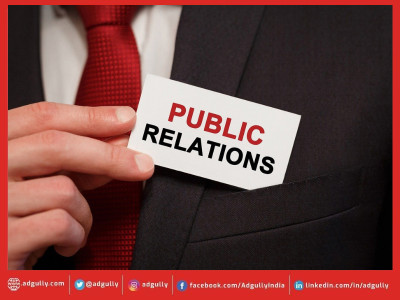AI: A Game-Changer for Crisis Communication in a Fast-Paced World
Authored by Jyotsna Dash Nanda, AVP, Corporate Communications, DS Group
The ever-shrinking window for effective crisis response demands a paradigm shift in communication strategies. Artificial intelligence (AI) is revolutionizing crisis management with its generative power. Throughout all phases of a crisis, from proactively assessing risks to expediting response and optimizing recovery, AI offers data-driven solutions that can be harnessed for significant improvement.
The exploration of AI's application in crisis communication is not only opportune but essential, particularly in an age characterized by increasingly compressed response windows during crises. In the age of information overload, vast amounts of data are readily available. Big data encompasses information in various formats, from structured databases to social media posts and sensor readings. This data requires advanced tools for processing and analysis. Crisis communication professionals can leverage AI to analyse the data to gain a comprehensive understanding of a developing crisis in real time. By analyzing social media feeds, news reports, and sensor networks, they can pinpoint the affected areas and demographics, allowing for targeted communication strategies. Additionally, AI allows for monitoring public sentiment through social media analysis. This reveals anxieties and concerns, enabling tailored messaging and swift action against misinformation. Predictive analytics, a powerful AI application, can also analyze historical data to identify potential crises before they erupt. This empowers organizations and corporate communicators to take proactive measures, mitigating potential damage and fostering preparedness.
Furthermore, AI-powered audience segmentation allows for targeted communication strategies. By analyzing data on demographics and past interactions, organizations can tailor messages to resonate directly with those most affected. This ensures crucial information reaches the right people at the right time.
AI offers a robust suite of functionalities that enhance crisis communication on multiple fronts. Chatbots powered by AI can provide 24/7 information and support to affected individuals, alleviating pressure on call centers. Additionally, AI can automate the generation of targeted messages for various platforms, ensuring consistent and timely communication across all channels.
Social media analysis is another area where AI shines. By analyzing public sentiment, AI can reveal anxieties and concerns, enabling organizations to tailor messaging and swiftly counter misinformation. This fosters trust and transparency, critical elements in crisis communication.
Beyond the Data, the Human Element is very important. While AI offers significant advantages, it's crucial to acknowledge the unique role of human expertise. AI may struggle to grasp the emotional nuances of a crisis. Human communicators can tailor messages with empathy and understanding, a crucial element in building trust with the public. Crises often demand complex decisions that require human judgment. AI can provide valuable data-driven insights, but ultimately, humans must make the final call. Transparency and accountability are paramount throughout the process. Organizations must be upfront about their use of AI and build trust with the public.
Generative AI allows us to move beyond traditional methods and develop data-driven communication strategies. Predictive analytics, a powerful AI application, can analyze historical data and identify potential crisis situations before they erupt. This empowers organizations to take proactive measures, mitigating potential damage and fostering preparedness. Furthermore, AI-powered audience segmentation helps tailor communication to specific demographics, ensuring messages resonate directly with those most affected.
Discussions around AI in crisis communication highlight both its potential and the challenges it presents. Indian case studies, showcasing real-world applications, are scarce, but ongoing research is bridging this gap. AI in crisis communication extends beyond its immediate applications. We must consider its broader societal impact. Reskilling and upskilling initiatives are crucial to prepare the workforce for the changing landscape of AI automation. Additionally, the need for training spokespersons in using AI tools like Perplexity and Yoddle is emphasized. These tools can assist with crafting compelling narratives and managing communication flow during a crisis.
Some of the other considerations include the challenges of data analysis, inherent data bias, security concerns, limitations in emotional intelligence, and transparency issues. Additionally, security concerns surrounding data privacy and misuse necessitate robust data protection regulations.
Additionally, AI's limitations in emotional intelligence must be acknowledged. While AI excels at data analysis, it cannot replicate human empathy. Effective crisis communication requires a human touch to convey sincerity and build trust.
By combining human expertise with AI's rapid analysis capabilities, organizations and communication professionals can significantly accelerate critical decision-making during a crisis. AI presents a transformative opportunity for crisis communication. By harnessing its power to generate data-driven strategies and fostering responsible development, organizations can navigate crises with greater agility and effectiveness. By acknowledging both the potential and the challenges, we can ensure AI becomes a force for good, building trust and fostering resilience in a rapidly changing world.

















Share
Facebook
YouTube
Tweet
Twitter
LinkedIn